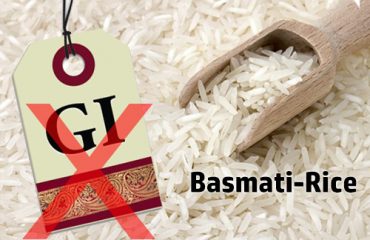A bill on legislation on Geographical Indications was passed by the National Assembly of Pakistan after being in the making for more than 18 years. Pakistan’s IP regime already covers Patents, Copy Rights, Trade Marks and Designs. Much like the legislation in place for registration of Trade Marks and Patents, if passed this legislation will also cater to the registration of geographical indications which are already registered abroad. Once registered, the geographical indication can be exhibited on marketing brands freely and at the same time it will also provide the owner with the right to act against any infringing use of the geographical indication. such infringing use has been included to mean that which falls within the definition of Article 10 bis of the Paris Convention regarding the protection of the same.
Surprisingly though unlike the assignment of Trademarks, the assignment of Geographical Indications has been prohibited. Previously the Geographical indications enjoyed protection under the Trade Mark law however the GI Bill provides that owners of GIs will have to file fresh applications for registration of the same. This will prove cumbersome. One of would have thought that with the enactment of the new law on GIs, previously registered GIs would automatically gain the benefit of protection under the new law. The Act was passed in March 2020 just before the effects of Covid-19 started settling in Pakistan.
Due to the absence of GI legislation, international brands continue selling Pakistan-origin goods such as Paul Smith’s Peshawari Chappal, Moroccan Ajrak and California Basmati, depriving the country to get premium on its GIs in the international market.
In Pakistan, GI law can protect products including Hunza apricots, Charsadda (Peshawari) chappal, Multani halwa, Hala’s Ajrak, Sargodha’s kinno, Kasuri methi, Sindhri mango, Dir knives, Swat wild mushrooms, Nili-Ravi buffalo, Chaman grapes, dates from Dera Ismail Khan, Turbat and Khairpur, Pashmina shawls, etc.
Overall the enactment of a law on Geographical Indications encourages businesses to invest in Pakistan and also goes towards Pakistan’s fulfillment of its obligations under TRIPs.
Member countries of the World Trade Organisation (WTO) need to give protection to GIs under Article 22-24 of the Trade-Related Aspects of Intellectual Property Rights (TRIPs) agreement. Unless Pakistan provides GI protection, it cannot obtain the same for its own goods in other countries that have the GI Law. The GI Law covers a wide variety of products that include industrial, agricultural, horticultural and others.
We hope that once the Covid-19 situation normalizes, Pakistan can start reaping the benefits of this law.




